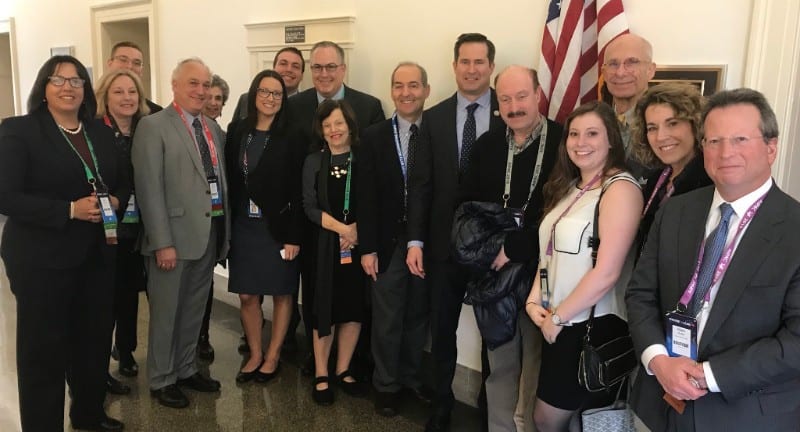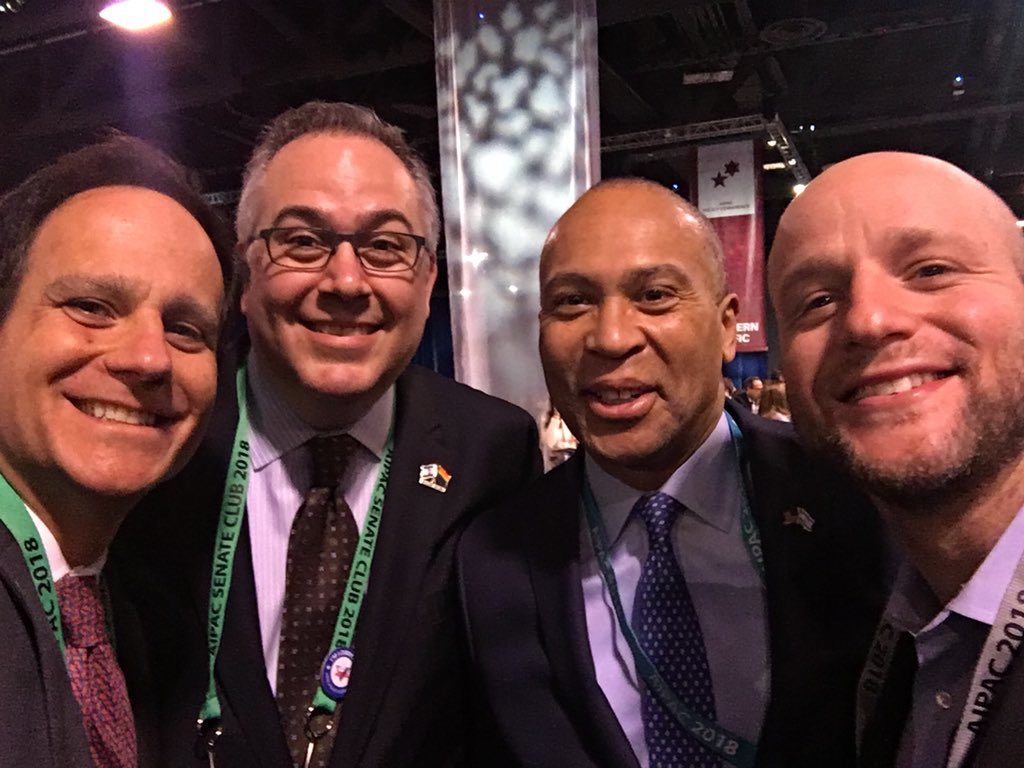What resonated most for me about this week’s AIPAC’s Policy Conference?
I could tell you about the energy I felt when I participated in lobbying meetings with a half-dozen members of Congress; engaging in rolling and elucidating conversations about the U.S.-Israel relationship and listening to their vigorous denunciation of BDS or Iranian efforts to export terror around the region. I could tell you about the more intimate conversations during an evening reception with the many candidates who took the time to fly in to meet and build relationships with activists and reaffirm the importance so many of us place on Israel’s security.

But what’s stayed on my mind is a question I was asked several times by those present and those following from afar: Given our vigorous expressions of concern about the unique challenge that President Trump’s administration poses to our nation’s democratic norms and institutions, what it was like to be in a room where key members of the Trump administration were greeted with warmth and applause (by at least part of the audience)?
It might surprise you to know that I was inspired to be in a room with many Trump supporters, and I came away from the experience feeling more hopeful.
What I kept noting this week was the wild diversity of participants, speakers, and issues discussed. Yes, the audience skews politically conservative and toward the Orthodox, though I also had great conversations with delegations and rabbis from many of Boston’s most prominent Conservative and Reform congregations. But the progressive focused sessions are also drawing crowds, the LGBTQ party has become a significant event, and I now see an increasing number of non-Jewish liberal civic leaders showing up to lobby. For all that I and others in the room are repelled by Vice President Pence’s embrace of and praise for President Trump as well as his own views on a host of social issues, I was also energized by the voices of those like Senator Amy Klobuchar (Minnesota) or our own former Governor Deval Patrick on the main-stage; in his case to introduce the inspiring Ohad Elhelo, founder of Our Generation Speaks, who spoke passionately about the work of young Israeli and Palestinian entrepreneurs coming together to work for a better future and an end to the conflict.

In panel after panel I heard distinguished commentators rail against the worst characteristics of the Trump administration. Israelis talked openly about the need to end the relationship of Occupation with the Palestinians, criticizing the settlements, or grappling with other dilemmas that Israel faces. I’m sure that others were challenged by these voices, as I was by some of those I heard. If I had one criticism of the program – and I’ve shared this with AIPAC staff – it would be that I wish more sessions were open to the press. Then maybe the public would have a better sense of the varied conversations spread across the spectrum that actually go on throughout these days.
And in that diversity lies an essential point. AIPAC is the coming together of people who don’t sit together in other places, who have deep disagreements that are named openly in various rooms, but who share a core commitment around one issue even as they represent different approaches on so much else.
Coming together requires compromise: I accept that this won’t be the organization that will advocate for all aspects of our aspirations for Israel’s future. There was no main stage call to action to help Israel to address the dilemma of Sudanese and Eritrean asylum seekers humanely. There are other Jewish spaces to do that work (including here at JCRC).
There was no shared analysis about how to support coexistence and peace building work between Israelis and Palestinians – though there was a resounding challenge from AIPAC CEO Howard Kohr that the absence of a peace process was “nothing to celebrate” and that, “We must all work toward that future: two states for two peoples. One Jewish with secure and defensible borders, and one Palestinian with its own flag and its own future.”
What defines the AIPAC experience is powerful, and unique in Washington. It is an explicit and implicit willingness to say, “that which we disagree on will not divide us when we need our collective efforts to achieve what unites us: Israel’s security.” AIPAC, when at its best, embodies a commitment to civility, and even curiosity and learning. My proudly sporting a Wider Bridge rainbow-flag/Israeli-flag pin invited more conversations about LGBTQ inclusion and Jewish life from folks new to my perspective than I am ever going to encounter in a liberal synagogue here at home.
So, for me the question is not “can AIPAC survive in this fractured partisan political era?” The question is “how can we learn from AIPAC’s model to create more spaces in which thousands of people can come together despite our differences, work together on what we agree on, and learn from each other where we don’t?” Because if we figure out how to do that more often, which I believe we can, then I have even more hope for our future.
Shabbat Shalom,
Jeremy




